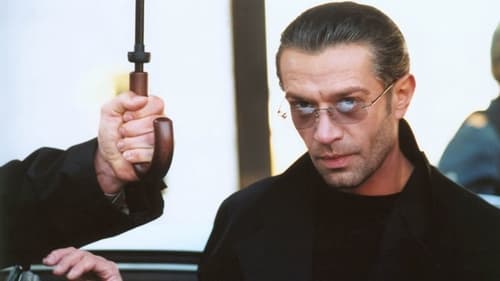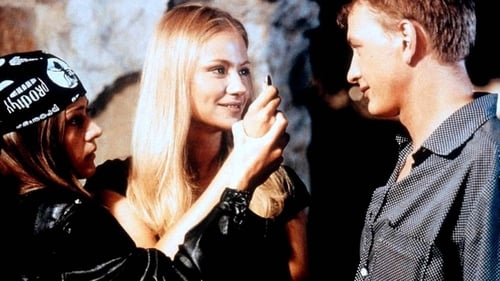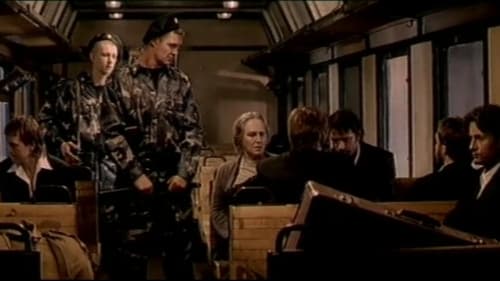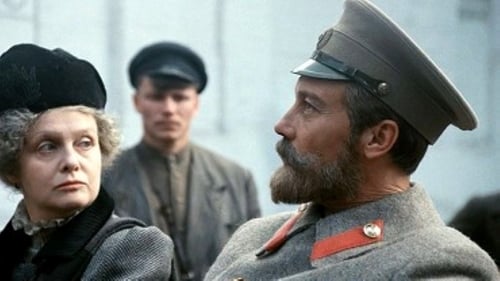
Producer
In this movie we follow fate not a person but car: first Soviet Lada. It starts with Brezhnev daughter and then gradually moves on parallel to last years of USSR into wild after-perestroika years with bandits and newly born oligarchs.

Producer
A story of a first love and a beautiful age of seventeen...

Producer
During the Gorbachev years, Platon Makovski and his four buddies are university students who jump on the private capitalism movement. Fast-forward 20 years, Platon finds himself the richest man in Russia, having sacrificed his friends to get to the top. But with this cynical rise, comes a brutal fall.

Producer

Producer
The beautiful Tanya returns to her small mining town, after supposedly working as a model in Moscow. She decides to marry her shy school sweetheart Mishka, who now works in the mine. The miners finally receive some pay, but Mishka still ends up with no money to buy his bride a gift, so he seeks the help of his perpetually drunk buddy Garkusha. Mishka's poor working-class family all help to put on a fine wedding with copious amounts of vodka, even though they are suspicious of Tanya's occupation in Moscow, and of her connection with her Mafia ex-boyfriend Borodin.

Producer
Old skipper travels with his old ship called "Fortune" on the Russian river.

Producer
After Polina, a mother of six, loses her husband, who went to jail for stealing charcoal and was killed when he tried to escape, she stays behind without any support. To be able to survive, Polina and her family start a folk group. But soon she understands that her children deserve a better fate, and she takes the desperate decision to steal a plane and go abroad... Fifteen years later, Polina is released from prison and finds out that fate has scattered her children all over the country: one is in the army, another is a miner in the Donbass, and the oldest, Lyonchik, who used to be in a mental institution, now pretends to be insane. Polina gathers all of her sons to free their older brother from the psychiatric hospital...

Executive Producer

Producer

Executive Producer
The plague of civil war reached a provincial town, where several noble families were stuck waiting for a train. The joy of hope was replaced by despair, fear of the future. No one knew how much was allotted to him in this life. Emotions boil, passions run high, hearts break, will is destroyed, pride is trampled. Each of the heroes survives in his own way, but all fell low. Ah, if you only knew when the long-awaited train would arrive in Moscow ...

Producer
A new doctor from Moscow arrives at a provincial mental institution. His interest is the peculiarities of the psyche of a patient who believes that he is Yakov Yurovsky, the man who assassinated the last Russian tsar. In the course of their conversations it transpires that the patient is a kind of philosopher, not without a gift for suggestion. In a while the doctor himself falls under his patient’s influence: he tends to relive that fatal night of June 16-17, 1918 when, without any investigation or trial, Tsar Nicholas II, who had recently abdicated, was murdered, together with his wife, daughters and incurably ill heir. Soon the doctor realizes that the tragedy of the last Russian tsar is in part his own tragedy, too...

Production Manager

Producer
2차 대전 중, 러시아의 어느 시골 마을에서 한 여인이 통나무 울타리 위에 앉아 남편이 돌아오길 기다린다. 그때 한 의사가 그녀에게 다가와 "우리는 늘 불신하고 서두르죠. 생각할 시간이 없어요" 라는 말을 남기고 지나간다. 어린 알료사는 아버지가 어머니의 머리를 감겨주는 모습을 보고, 어머니는 거울을 들여다보기 시작한다.
안드레이 타르콥스키 감독의 자전적인 성격이 강하게 나타나 있는 영화로, 이 영화도 그의 다른 영화들처럼 상징과 시적인 언어로 줄거리를 이어간다. 거울은 인간의 삶을 비추는 반영으로 이용되고, 사람들을 그 거울을 보면서 인생을 다시 한 번 생각하게 된다. 삶의 근원적인 문제, 희생과 구원, 고향을 잃어버린 자의 향수 등을 독특한 언어로 그려온 안드레이 타르콥스키. 그의 작품이 새로운 세기에도 여전히 힘을 잃지 않은 것은 그 안에 인간이 들어있기 때문일 것이다. 영화는 제2차 세계대전 과정과 그 이후의 러시아의 역사와 풍경을 묘사하며 각각의 에피소드들은 여러 감정과 느낌을 부유하는 이미지들로 포착했다. 영화 속 화자의 의식 흐름을 받쳐주는 시들은 감독의 아버지 아르세니 타르콥스키의 작품들이고, 감독이 직접 낭송했으며 마지막 장면에 자신의 어머니를 출연시키기도 했다.






